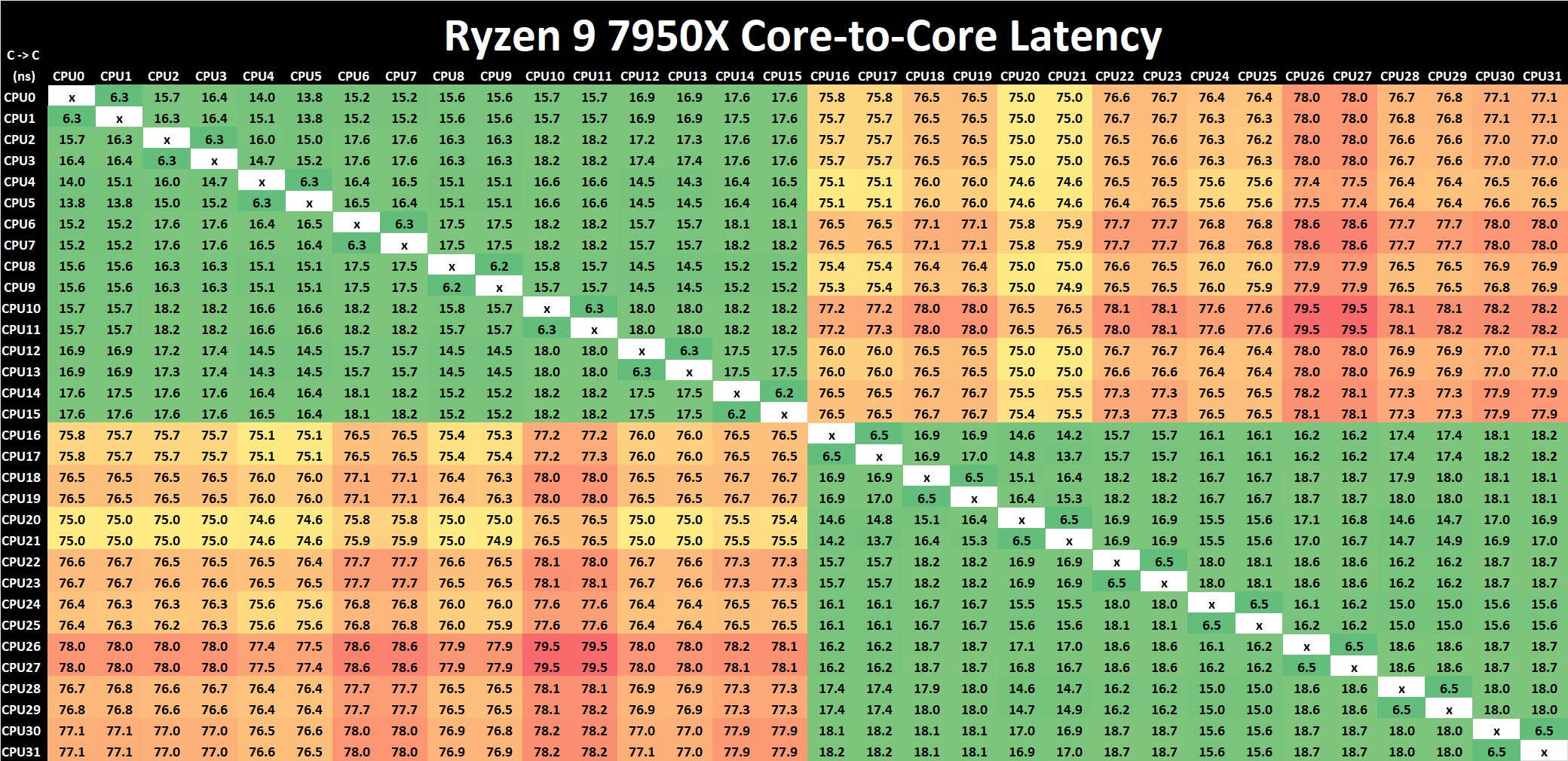Was going to talk about not comparing apples to apples, but really as MM says still early firmware & software, there are some big (~30%) boosts Z4 to Z5 and some little ones, averaging tends to losing the weight vs the real world, even more-so with Spec. The notable thing is comparing Z3+ to Z5c which best illustrates where the areas where efficiency may be exploited.
Looking at the original blog (
https://blog.hjc.im/zen5-preliminary-review.html ) linked in the THG article and at the bottom of the VideoCardz artifle, some nice additional stuff including the TDP tests, intruction rate, and also inter-core latency.
The part that surprised me was the inter-core latencies seem very VERY high, even compared to designs that need to communicate between dies like 7950. You can see the very clear split between Z5 and Z5c and even within their groups it seems a bit high vs the Phoenix based 8700G.
Slower than the 2 separate low-power island efficiency cores on Meteor Lake (cores 20&21 on 155H grid), and also 6-8 of them being hamstrung vs just 2.
This is an area I don't expect changing much over time, whereas the performance numbers above may get boost when accounting for improvements in firmware & software.
First grid & second grid from David Huang's blog, following latencies from Anand.
Compared to Phoenix desktop APU (couldn't find Ryzen mobile on Anand), Core 155H, and the BigBoy 7950X which has to communicate between dies.







